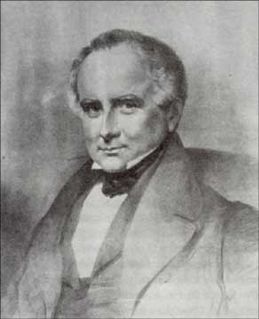A Quote by Teresa of Avila
There is more security in self-denial, mortification, and other like virtues, than in an abundance of tears.
Related Quotes
If any man would come after me, let him deny himself." The disciple must say to himself the same words Peter said of Christ when he denied him: "I know not this man." Self-denial is never just a series of isolated acts of mortification or asceticism. It is not suicide, for there is an element of self-will even in that. To deny oneself is to be aware only of Christ and no more of self, to see only him who goes before and no more the road which is too hard for us. Once more, all that self denial can say is: "He leads the way, keep close to him.
When it comes to immigration, I have actually put more money, under my administration, into border security than any other administration previously. We've got more security resources at the border - more National Guard, more border guards, you name it - than the previous administration. So we've ramped up significantly the issue of border security.
Loyalty saves us from the self-advantaging compromising of important relations - such as friendship, marital and professional commitments, group memberships, and so on. But as the Aristotelians would put it, its expression requires phronesis - wisdom not to allow it to compromise other important virtues ,there is something to the ancient doctrine of the unity of the virtues. I believe that is true of all virtues, but especially of the executive virtues - such as industriousness, sincerity, conscientiousness, and courage - which may become detached from substantive goods.
Once you're labeled a felon, the old forms of discrimination - employment discrimination, housing discrimination, denial of the right to vote, denial of educational opportunity, denial of food stamps and other public benefits, and exclusion from jury service - are suddenly legal. As a criminal, you have scarcely more rights, and largely less respect, than a black man living in Alabama at the height of Jim Crow. We have not ended racial caste in America; we have merely redesigned it.
The modern world is not evil; in some ways the modern world is far too good. It is full of wild and wasted virtues. When a religious scheme is shattered (as Christianity was shattered at the Reformation), it is not merely the vices that are let loose. The vices are, indeed, let loose, and they wander and do damage. But the virtues are let loose also; and the virtues wander more wildly, and the virtues do more terrible damage. The modern world is full of the old Christian virtues gone mad. The virtues have gone mad because they have been isolated from each other and are wandering alone.
The very act of faith by which we receive Christ is an act of the utter renunciation of self, and all its works, as a ground of salvation. It is really a denial of self, and a grounding of its arms in the last citadel into which it can be driven, and is, in its principle, inclusive of every subsequent act of self-denial by which sin is forsaken or overcome.










































